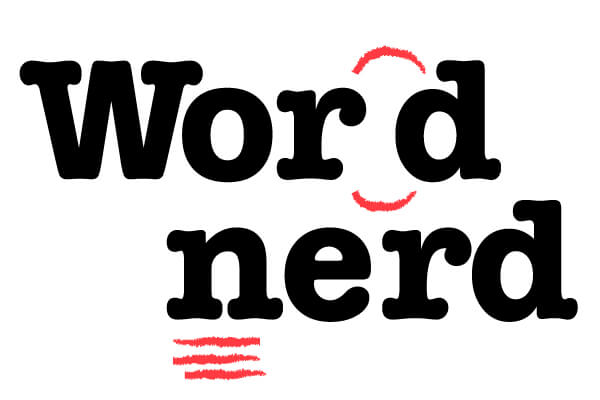The alt-right was robbed this past week—not in the corridors of power, of course, where far-right, Nazi-inspired racists currently seem to be receiving valuable things such as White House positions and airtime on major networks. No, the alt-right was robbed in a somewhat less relevant world: competitive lexicography.
“Alt-right” should have been the word of the year. Instead, Oxford Dictionaries snubbed the obvious frontrunner and gave the honour to “post-truth.” Post-truth is not totally unworthy; it means, Oxford indicates, “relating to or denoting circumstances in which objective facts are less influential in shaping public opinion than appeals to emotion and personal belief.” It’s a useful concept—if somewhat reminiscent of Stephen Colbert’s “truthiness,” which was declared the 2006 word of the year by Merriam-Webster—and one that has obvious applications in a political landscape in which all the facts you don’t like are lies cooked up by people you don’t like.
But Oxford squandered an opportunity when it consigned “alt-right” to the runner-up bin with “Brexiteer,” “woke,” and “adulting.” On a very basic level, it provides an interesting illustration of the use of “alt”: short for “alternative,” those three modest letters, when placed in front of some other word, apparently create an effect that’s cool and vaguely countercultural. Merriam-Webster has written a whole article about the history of “alt” and its ability to bestow a certain cachet. (Sure, you don’t like country music . . . But what if I told you this was alt-country?)
In this case, though, the modest, heavy-lifting “alt” is doing more than convincing radio listeners that liking the Red Hot Chili Peppers makes them edgy. It is allowing a group of people to function in the political sphere without having to cope with the fallout from their more familiar titles: Neo-Nazis. White supremacists. Choosing “alt-right” as the word of the year would have highlighted its ubiquity and forced us to question its role in our cultural dialogue.
“Alternative right” was likely first used in the title of a 2008 speech given by paleoconservative political philosopher Paul Gottfried at the H. L. Mencken Club. In 2010, it became the title of an online publication started by Richard Spencer, a white nationalist (i.e., racist) who made the news recently after he appeared at a right-wing convention in Washington and proceeded to spout Nazi propaganda and muse about whether Jews were, in fact, people (a number of those in attendance responded with Nazi salutes and cries of “Heil the people! Heil victory!”). During this past American election cycle, the term really came into its own, as media outlets struggled to describe the white-nationalist effort to install Donald Trump as the president of the United States.
Instead of simply stating that a large group of motivated racists was agitating to reshape mainstream politics, newspapers ran headlines such as “Alt-right ascendant” and “Breitbart takes centre stage as Donald Trump embraces the alt-right.” Some outlets attempt to signal that they are simply using the name the movement has given itself, isolating the term in quotation marks. One news site, Think Progress, announced today that it would be doing away with it entirely: “We will use terms we consider more accurate, such as ‘white nationalist’ or ‘white supremacist.'”
Certainly, racists have the right to call themselves whatever they like. But we are not required to adopt their self-chosen euphemisms. A bank robber may refer to himself as an “alt-investment” enthusiast, but when he makes off with his loot, we do not expect to see the heist covered under the headline “Alt-investment—a new trend in finance?”
It’s not even as if the alt-right itself is attempting to argue that it encompasses a variety of views, not all of which are racist. When the Southern Poverty Law centre reported that “the goal [of the alt right] is often offensiveness for the sake of offensiveness in the way that many young white men embrace,” Andrew Anglin, of the neo-Nazi website The Daily Stormer, retorted: “No it isn’t. The goal is to ethnically cleanse White nations of non-Whites and establish an authoritarian government. Many people also believe that the Jews should be exterminated.”
The Anti-Defamation League, in its helpful “Alt Right: A Primer about the New White Supremacy,” states that “people who identify with the Alt Right regard mainstream or traditional conservatives as weak and impotent, largely because they do not sufficiently support racism and anti-Semitism.” Although it notes that “not every person who identifies with the Alt Right is a white supremacist,” it concludes that “most are,” adding, “‘white identity’ is central to people in this milieu.”
While the majority of its boosters appear to be truculently, unashamedly racist, it’s clear that the movement benefits from a euphemistic rebranding that draws from the vernacular of consumer culture. There’s a reason that the word of 2017 could well turn out to be “normalization”: Give something a less scary name, and there’s a good chance people will be less scared of you. Convince the media to use that new name, and you’re off to the races—or the White House. If we’re going to resist the normalization of alt-right views, we have to start by calling them by their proper name: racist.




